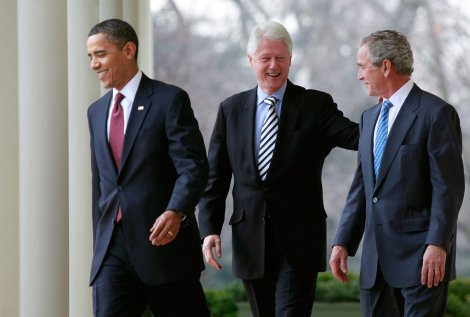
Directed and Written by: Fred Peabody
Featuring: I.F. Stone, Noam Chomsky, Carl Bernstein, Michael Moore, Glenn Greenwald, Jeremy Scahill
Produced by: Peter Raymont, Andrew Munger, Steve Ord
Cinematography by: John Westheuser
Music by: Mark Korven
Editing by: Jim Munro, James Yates
*****
Editor’s Note: All Governments Lie, an Official Selection of the 2016 Toronto International Film Festival, and National Bird, an Amnesty International Film Prize nominee at the 2016 Berlin International Film Festival, are now in select theaters around the country.
For more information on All Governments Lie, check here.
For more on National Bird and Sonia Kennebeck, click here.
*****
As one of the 145 films in this year’s Oscar race for documentary features, All Governments Lie: Truth, Deception, and the Spirit of I.F. Stone is an unfortunate bit of good filmmaking that leaves one with a bitter taste. I say, kindly, that the subject matter of this film will be hard to digest for the average viewer’s palate due to the questioning nature of its focus: the mainstream media’s complicity in government misinformation — that is, lying — and in some cases, deliberate failure to report news in a timely fashion accurately. For critics of contemporary populist journalism, this film is a boon to and justification of all the accusations made against the mainstream media’s coverage of “news”; and the appearances by many renowned independent journalists from different outlets serve to drive home the point that the media can no longer be trusted to deliver honest journalism.

Central to writer/director Fred Peabody’s purpose is the dissection of I.F. Stone, an intellectual investigative journalist who founded the newsletter I.F. Stone’s Weekly. The journalists interviewed draw parallels from their work to Stone’s by calling into question the validity of the media cycle, and by extension the claims of the government that influences it at all levels. Indeed, Stone’s research methods seem endemic to this group of wayward journalists, which includes Matt Taibbi of Rolling Stone magazine; Jeremy Scahill and Glenn Greenwald, the co-founders of The Intercept with Laura Poitras; David Corn of Mother Jones; and Chris Hedges, former contributor to The New York Times, one of the organizations the film targets in its arguments. Each journalist has a growing fandom of readers, and Peabody – along with editors Jim Munro and James Yates – presents them as the next possible incarnations of I.F. Stone’s critical anti-propagandist journalism.
The doc makes passes at several national news stories, including the coverage of events leading up to the War in Iraq, a mass gravesite found in Texas near the border of Mexico, and the U.S. drone campaign – also the subject of a similarly topical new documentary, Sonia Kennebeck’s National Bird. Upon closer inspection of the coverage during the crucial catalytic moments of these events (and a significant bit of hindsight bias) the movie tries to assert definitively that the pundits’ proclamations were lies, hypocrisy and negligence as moral reportage. While making brushing references to other stories, such as Edward Snowden’s infamous whistleblowing on NSA surveillance, the rhetoric of Donald Trump’s (now successful) presidential campaign, and the rapid rise and fall of Cenk Uygur on MSNBC, the filmmakers’ criticism is almost lost amidst the many threads they seek to pull in this loose film.
One of the most distracting of their threads originates in a scene where Jeremy Scahill says: “If we don’t get to the heart of the fact that there was, long ago, a coup in this country — a silent coup — where corporations took total control of the process of selecting the leaders of this country, then nothing is going to change.” Throughout the movie, a case is being made about the damaging effects of the military industrial complex and the news surrounding it from mainstream media; yet this line from Scahill points to a different issue completely. The moment in which this line is said takes place against the backdrop of the Charging Bull monument on Wall Street, a place of issues which go fully unaddressed by the film. This distracts the viewer from the overarching theme at work here: that independent news not only gets to big stories first, but also reports on them more honestly and directly, whereas the mainstream media regurgitates government talking points back to the public regardless of their veracity.

However, independent journalism is not portrayed by Peabody or his group of talking heads as an innocent victim of sidelining and repression by the mainstream. The filmmakers rightly ignore the side of non-mainstream tabloids and extremist corporations that similarly neglect to conduct the investigative work that made I.F. Stone’s name. Yet perhaps that is also one of the film’s great failings: not diagnosing the things that drive most of the public away from independent news sources. Core to viewers’ experiences and attachments to characters like Greenwald and Taibbi – or, for example, Kennebeck, whose handy direction of National Bird has recently courted great controversy for coaxing drone warfare data into the public eye – is the belief that the personalities on screen are in fact trustworthy, in contrast to the obnoxious punditry taking place on CNN, MSNBC, FOX and other commercially-oriented “news” channels.
Similarly, for all the praise heaped onto these independent journalists in All Governments Lie, a blind eye is turned to the worst elements of independent news which aim to spread misinformation and conspiracy that masquerades as newsworthy revelations and investigative work. Without providing a roadmap for viewers to quickly and simply absorb correct, verified information in order to discard what could be lies, the viewer is forced into the same position by the filmmakers as they are by contemporary media outlets: relying on hindsight bias to uncover truth in today’s news.
